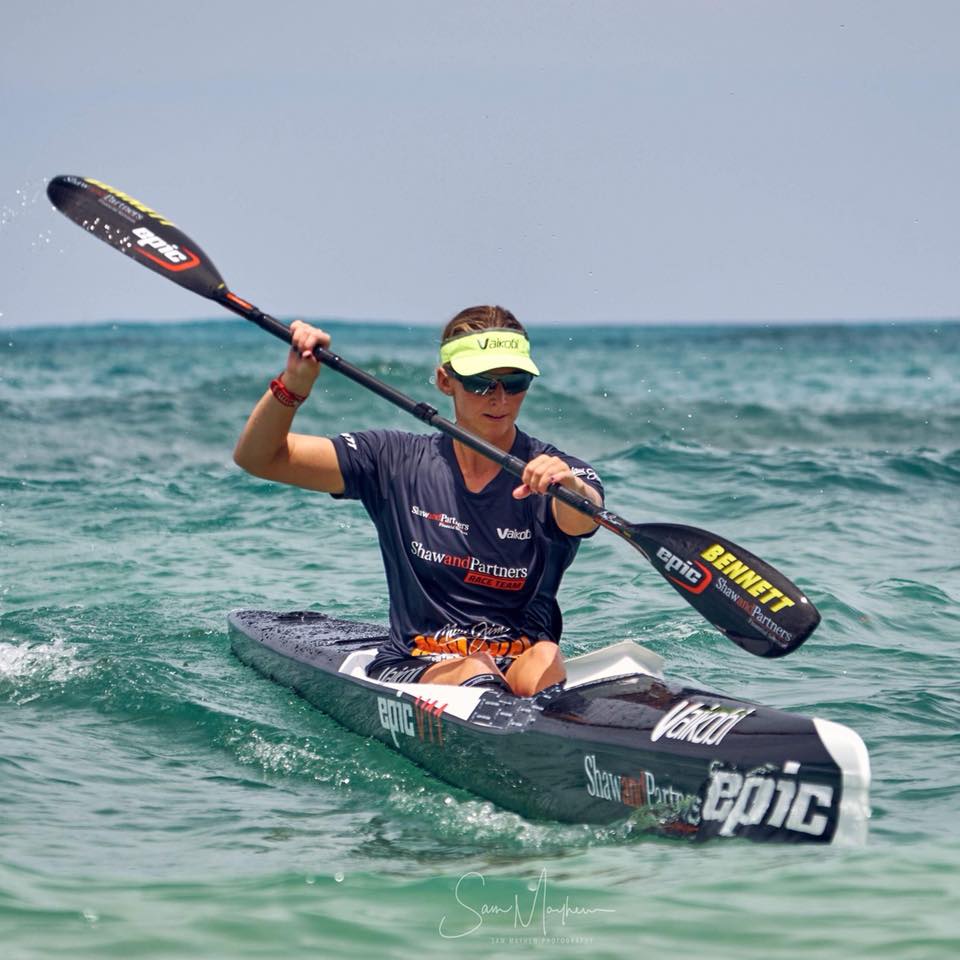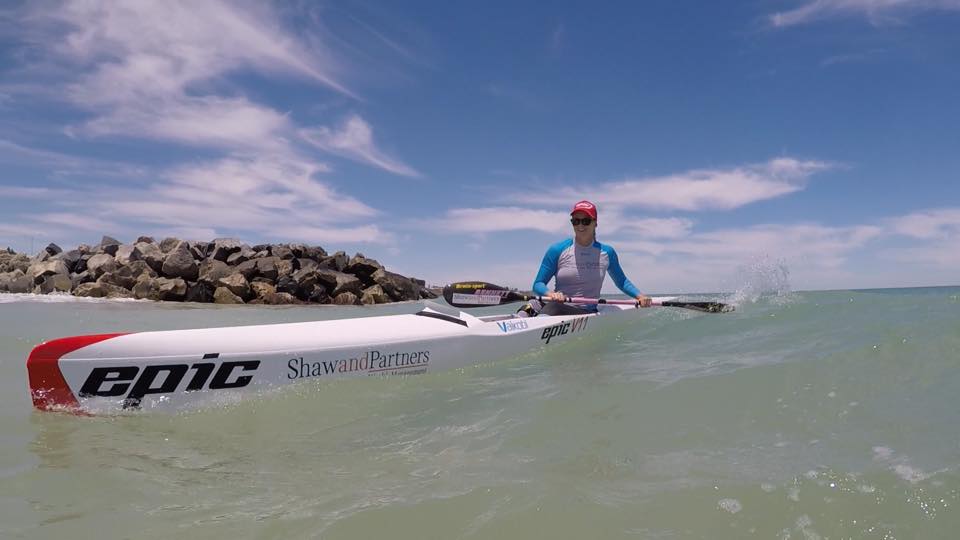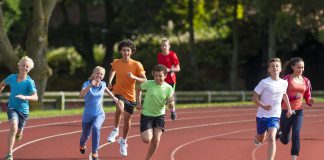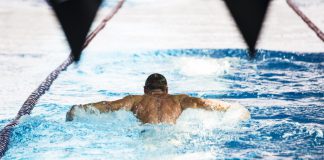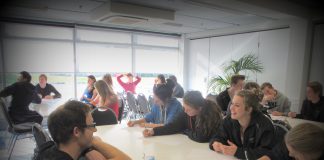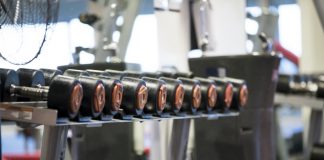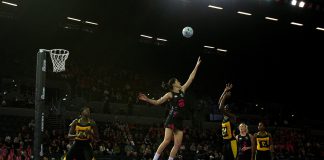“It really starts to hurt at around 35km. You can see the land but it’s not getting any closer.”
If you’ve never tried ocean paddling before it’s hard to fathom what a 53km paddle would require. The Molokai Ocean Paddle event in Hawaii is a true test of endurance. 28 year-old Rachel Clarke understands just how hard the event is, she’s done it three times. Molokai was her first major event, and she’s been hooked ever since.
As a full time police officer, multiple New Zealand and world ocean paddling champion, Rachel is a true Everyday Champion. Her passion for the activity is undeniable when you hear what her average week entails. Balancing shift work with dawn paddles, sessions lasting for more than three hours, strength training and nutrition, Rachel is dedicated to being the best athlete she can be. “I didn’t know what to expect my first time,” she says of her first Molokai event in 2014. “I knew it would be a hard paddle, I just kept my mental strength. I’d done the work before I arrived, so I focused on that,” explains Rachel. The Molokai ocean paddle event takes competitors across the unpredictable ‘Channel of Bones’ between the islands of Molokai and Oahu. A range of entrants arrive each year, from primed athletes to seasoned paddlers and individuals looking for a new challenge. Taking between four and six hours to complete, it is a test of both mental and physical dexterity, and Rachel thrives on the challenge. “53kms is no sprint!” she laughs. “You have to race smart and know what your game plan is.” The treacherous stretch of water means competitors have to adapt quickly to the surf. “I think every time you cross the Molokai channel it’s an achievement in itself,” Rachel emphasises. “It’s one of the most dangerous waters in the world!” A humble athlete with an impressive performance portfolio, we wanted to know more about what motivates Rachel to compete in ocean paddling and what advice she would give to novice paddlers.
What do you enjoy about ocean paddling?
“I love how much it changes when you’re out there!” explains Rachel. No two sessions are the same and learning to utilise the sea’s unpredictable nature is incredibly satisfying for many paddlers. When it comes to ocean skills and adaptability, it’s impossible to look past the Molokai event. Through her experiences, Rachel has learned a lot about race tactics, mental strength and fuelling for long distance competition. “There’s a lot going on out in that channel between Molokai and Oahu, such as tidal movements, swell and wind that you have to take into consideration!” she explains. “This year was the first downwind race we’ve had and it was awesome.” The esteemed event draws the world’s best each year. “Molokai is the most prestigious ocean paddle event in the world and every year is different. There are new paddlers from all around the globe,” says Rachel.
Despite the excitement of events, international travel and new friendships, it’s not all plain sailing. Most of us understand what it is like to lack enthusiasm at times, even for activities that normally excite us. Maintaining motivation during lone paddles, especially during winter, is a challenge. “I think about what I want to achieve,” says Rachel. “It can get boring, so thinking about my goal is very important.” Ocean paddling is gaining in popularity however, and Rachel adores group sessions. “I find I push myself harder when there are others around. It’s a big challenge and it’s fun.”
What do you do off the water to help your performance?
In addition to the physical challenge of ocean paddling, Rachel understands that improvement fuels motivation and it takes more than just time out on the water to be a better athlete. “This year I’ve started seeing a mental skills coach and a nutritionist,” she explains. Optimising her food intake and mental awareness is just as essential as the strokes she takes in training. “The most surprising thing I found out was that I wasn’t eating enough! My nutritionist has helped explain what I need, how much I need and when.” Large training loads will always require more fuel, so when it comes to nourishing the body for endurance events, it’s important to get it right. To help put Rachel’s dietary requirements into perspective, a moderately-active woman has a recommended daily intake of between 1,800 and 2,200 calories a day. Rachel would have burned approximately 4430 during her Molokai paddle alone, more than double the daily intake in just under five hours! Despite being an incredibly focused and driven individual, Rachel is just like everyone else when it comes to food cravings. “I love chocolate!” she laughs. “It’s my one weakness. White chocolate, milk chocolate or dark chocolate, I don’t care, I truly love it all. It’s about balance, I’m not going to completely restrict myself.”
What is your advice to novice paddlers just starting out on their journey?
“’Give it a go! What have you got to lose?!” laughs Rachel. With more than six years of ocean paddling experience, she now shares her passion with new paddlers through coaching. With individual and group sessions available, the accomplished athlete wants more people to feel what it’s like to be out on the water enjoying the local landscapes. “My favourite place to paddle is still Takapuna,” says Rachel. “The North Shore coastline is incredible”.
You can get in touch with Rachel via her Facebook Page at: www.facebook.com/RachelClarkeNZ
Fact Box
Name: Rachel Clarke
Age: 28
Hometown: Auckland
Occupation: Police officer, diplomatic squad.
Sport: Ocean Paddling
Experience Ocean Paddling: 7 years
Achievements:
- World Series champion 2017 – Ocean Paddling
- 6x New Zealand champion – Ocean Paddling
- 2x Molokai World champion – Ocean Paddling
We love sharing the successes and stories of our AUT Millennium community. If you know someone with a great story, or have one yourself, then please get in touch with us today! Email [email protected] for more information.

























